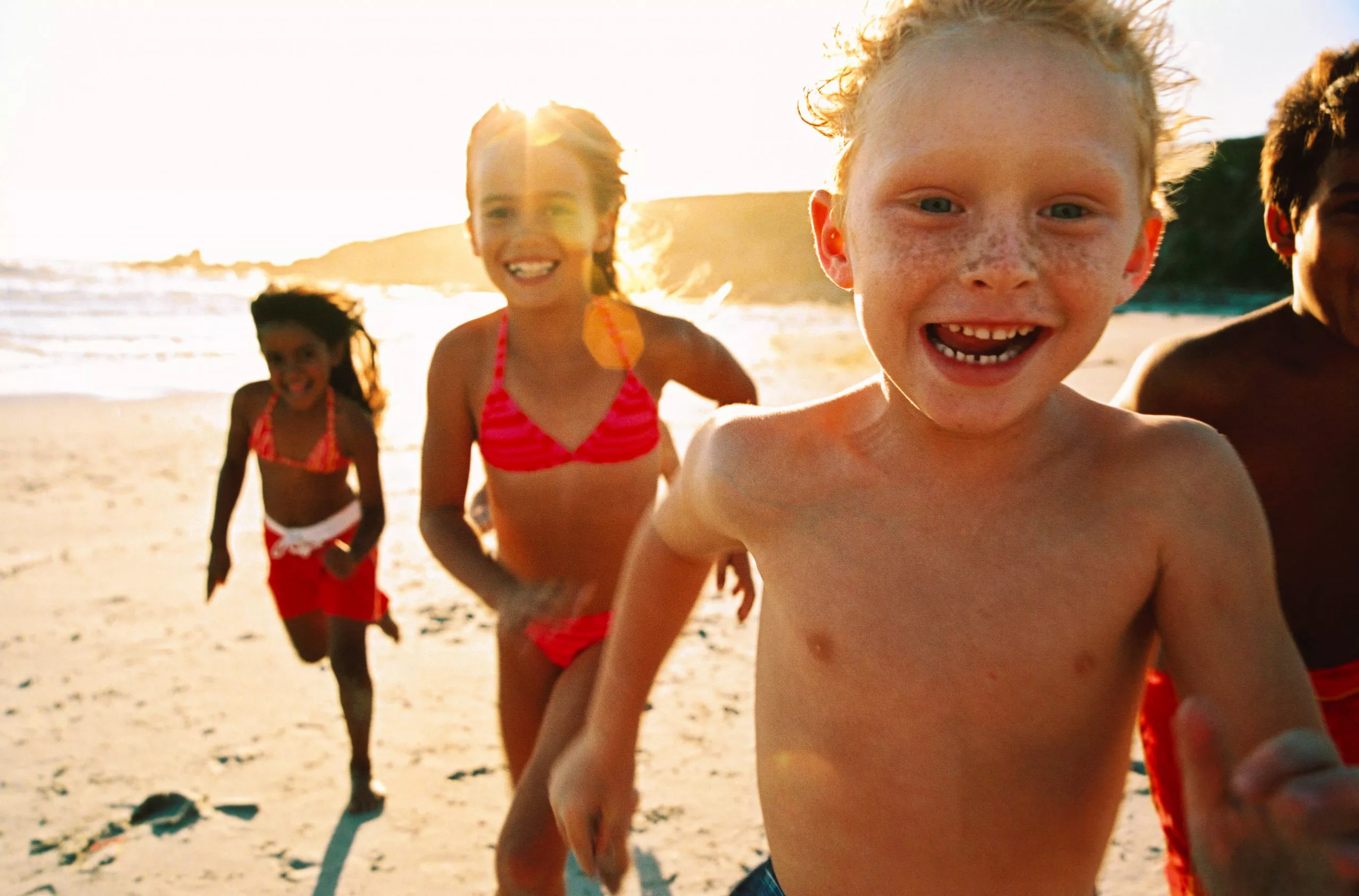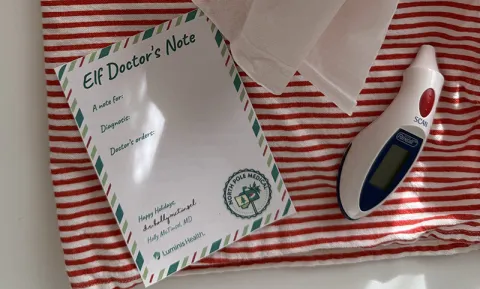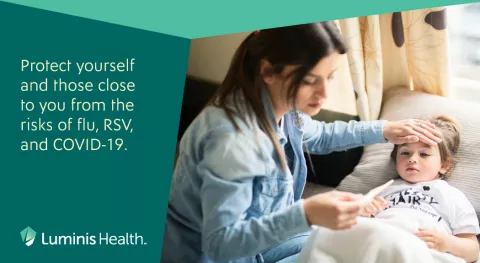
portrait of a group of children running on the beach
If you’re finally traveling to see friends or family this summer — or just hitting the road for some R&R — it’s still important to weigh the COVID-19 risks. But with careful planning (and some mask wearing, social distancing and handwashing) it might be OK to now book that long-awaited trip.
First, Check Travel Restrictions
Before you finalize your plans, check online for travel restrictions. Some places aren’t yet open to travelers or could require you to get a COVID test before arrival. And, even if travel is allowed, it’s smart to check infection rates where you’re going to make sure there isn’t a local spike in cases.
If You’re Not Vaccinated
The Centers for Disease Control and Prevention (CDC) say it’s safe to travel within the U.S. if you’re fully vaccinated and follow safety precautions. If you’re not vaccinated, they recommend you delay your trip. However, if you have to travel before then, you should:
- Get tested one to three days before you leave
- Quarantine for 10 days after you return home (or seven days with another negative test after your trip)
Protect Yourself in Transit
If you’re headed through a public transit hub such an airport, keep in mind it might be crowded. Even with signs reminding everyone to stay six feet apart, that might not always happen in lines, at busy gates and on shuttles. Take the following safety measures:
- Consider eye protection. You might want to wear protective glasses or a face shield in addition to your mask.
- Keep distance. Leave seats open between you and other travelers when possible.
- Mask up. Wear a mask in airports and transit stations, and on shared transportation like planes, trains, buses and taxis.
- Wash your hands often. Don’t forget to scrub up after touching common surfaces like turnstiles, touchscreens and handrails.
Stay Safe at Your Destination
Unfortunately, COVID isn’t taking a vacation just yet, and new variants are circulating. Keep taking the safety measures you take at home while on your trip. You might want to pick a destination with plenty of fun outdoor activities so you can enjoy yourself with a lower risk of virus transmission.
If you’re headed to a beach or swimming pool, keep in mind that while the CDC hasn’t noted any reports of the virus spreading through water itself, the virus can still be passed through the air in a crowd of people.
Prepare for the Unexpected
When you’re packing your bags, think ahead. You might want to bring a few extra items to ease your mind and reduce your risk while you’re on the go. That could include:
- Extra masks in case yours get wet or dirty
- Harder-to-find safety gear like protective eyewear
- Sanitizing wipes to use on tables or counters
And don’t forget the snacks. In some areas, transit food courts might be overcrowded or not yet fully open. If you’re traveling by car, bringing your own food can also cut down the need to go into busy markets or restaurants near hot vacation spots.
Finally, Aim for Flexibility
Travel advice continues to change as we learn new information about COVID. If you’re heading out for a trip soon, stay up to date on the news and ready to adjust your trip if needed.
And remember, with so many people eager to travel, you may hit delays on the road or at rental car locations. But getting the chance to safely venture out, hug family and friends, and recharge a bit after the year we’ve had is well worth it.
Dr. Michael Glickman practices family medicine on Kent Island.



